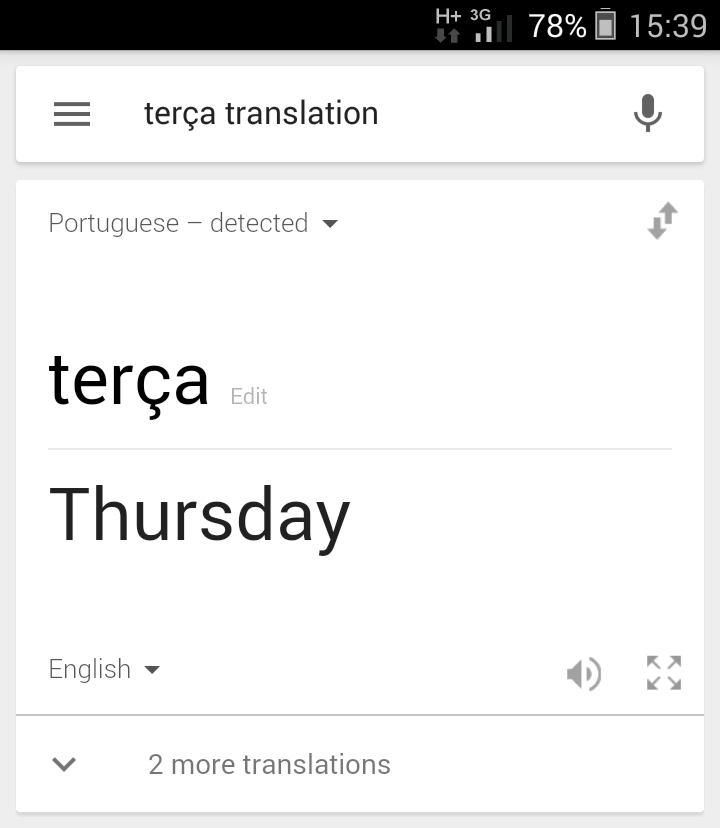Leading English To Portuguese Translation Services for Your Requirements
Top Tips for Perfect English to Portuguese Translation Services
Attaining outstanding English to Portuguese translation needs more than plain word-for-word conversion; it demands an understanding of social nuances and etymological intricacies. Selecting qualified translators who are both culturally conscious and proficient is paramount - English To Portuguese Translation. What other essential factors should be taken into consideration to raise translation quality additionally?
Understand Cultural Nuances
When translating from English to Portuguese, comprehending the cultural nuances is necessary for producing a accurate and powerful message. The Portuguese-speaking globe varies, incorporating numerous areas, each with its unique customs, idioms, and social standards. A translator has to be in harmony with these nuances to ensure that the translation not only communicates the intended message yet additionally reverberates with the target market.
For example, colloquial expressions in English may not have straight counterparts in Portuguese. An expression that functions well in one culture can result in complication or misconception in another. Comprehending local dialects and variants, such as those found in Brazil and Portugal, is critical; words may hold various connotations or uses depending on the location.
In addition, cultural context plays a substantial duty in translation. Ultimately, a detailed understanding of cultural subtleties is vital for providing translations that are not just linguistically accurate yet likewise culturally relevant and appealing.
Select Qualified Translators
Selecting certified translators is a crucial action in making sure the accuracy and high quality of English to Portuguese translations. A translator's knowledge not only includes language proficiency yet also a deep understanding of social context, idiomatic expressions, and industry-specific terms. When selecting a translator, prioritize those with formal training in translation research studies or grammars, along with appropriate qualifications that demonstrate their expert proficiency.
Experience plays a critical duty also; translators specializing in specific areas-- such as legal, clinical, or technical-- are more probable to deliver exact translations customized to the industry's criteria (English To Portuguese Translation). In addition, consider their profile and client endorsements to analyze their previous work quality and dependability
Engage translators that are indigenous Portuguese speakers, as they possess an innate understanding of the language's subtleties and regional languages. This experience enhances the translation's credibility and efficiency.
Usage Contextual Recommendations

When equating, it is important to identify colloquial expressions and social referrals that might not have straight equivalents in Portuguese. Particular phrases that resonate in English may require adjustment to communicate the same psychological weight or cultural value in Portuguese. Utilizing contextual references can aid translators select the right terminology and design, consequently enhancing the total clearness and influence of the translation.

Focus on Localization
Localization plays a crucial role in the translation process from English to Portuguese, as it guarantees that the translated content is culturally suitable and appropriate to the target audience. English To Portuguese Translation. This process surpasses mere translation; it includes adapting the material to the social, social, and linguistic nuances specific to Portuguese-speaking regions
Understanding regional expressions, personalizeds, and check these guys out choices is vital. For example, certain phrases or references that resonate with an English-speaking additional resources audience might not have the very same influence on Portuguese audio speakers. It is necessary to take into consideration local variants, such as Brazilian Portuguese versus European Portuguese, as each has unique vocabulary and stylistic distinctions.
Furthermore, localization incorporates format, such as day and time layouts, currency, and dimension devices, which can differ considerably throughout societies. This interest to detail fosters a link with the target market, improving engagement and understanding.
In addition, using regional dialects and slang can provide credibility, making the material much more relatable. By focusing on localization in English to Portuguese translation, companies can effectively communicate their message, build count on with their audience, and ultimately achieve their desired objectives.
Testimonial and Edit Thoroughly
Detailed review and modifying are vital action in the translation procedure, specifically when converting English content right into Portuguese. This stage makes sure that the converted material not only maintains the original meaning however likewise reverberates well with the target market. Offered the linguistic and cultural subtleties, a precise technique to review and modifying is crucial.
Begin by comparing the original English message with the Portuguese translation, paying close attention to terminology, context, and tone. It's vital to ensure that idiomatic expressions and social references are properly adapted for the Portuguese target market. Engaging a second translator or an indigenous speaker for this evaluation process can offer very useful understandings and capture errors that may have been overlooked.
Furthermore, check for grammatical accuracy and stylistic uniformity throughout the document. Usual challenges such as uncertain expressions or incorrect cognates need to be resolved to stay clear of misconception.
Conclusion
Accomplishing extraordinary English to Portuguese translation services necessitates a thorough method that includes understanding social nuances, choosing certified translators, making use of contextual referrals, focusing on localization, and performing detailed reviews and edits. Each aspect plays an important function in guaranteeing that translations are not just precise yet additionally resonate with the target audience. By carrying out these strategies, organizations can improve the effectiveness of their communication and cultivate a deeper connection with Portuguese-speaking audiences.
Attaining exceptional English to Portuguese translation needs even more than mere word-for-word conversion; it requires an understanding of social subtleties and etymological additional reading intricacies.Choosing qualified translators is a critical action in ensuring the accuracy and top quality of English to Portuguese translations.Detailed testimonial and modifying are essential steps in the translation process, particularly when transforming English material into Portuguese.Begin by comparing the original English text with the Portuguese translation, paying close interest to context, tone, and terms.Accomplishing phenomenal English to Portuguese translation solutions demands a comprehensive method that incorporates understanding cultural nuances, selecting certified translators, utilizing contextual references, focusing on localization, and conducting complete reviews and edits.